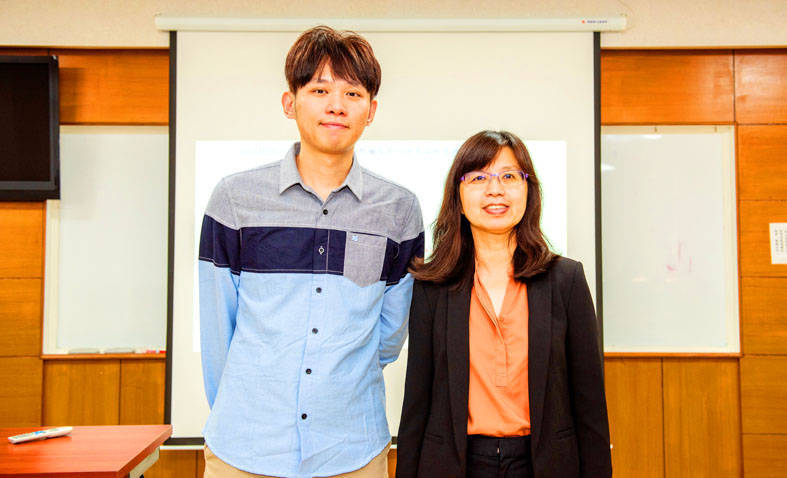《TAIPEI TIMES》 Academia Sinica team finds potential curb to fatty liver

Academia Sinica Institute of Biological Chemistry researcher Chen Yu-hsuan, left, the lead author of a paper detailing a previously unknown mechanism to curb the development of fatty liver, poses for a photograph with Chen Ruey-hwa, a research fellow at the institute, in Taipei yesterday. Photo courtesy of Academia Sinica
By Yang Yuan-ting / Staff reporter
Academia Sinica researchers have identified a previously unknown mechanism to curb the development of fatty liver and proved its findings in animal experiments, the agency said yesterday.
Fatty liver is a prevalent condition in Taiwan and worldwide, and is associated with obesity, diabetes, cardiovascular diseases or long-term use of medicine containing steroids, said Chen Ruey-hwa (陳瑞華), a research fellow at Academia Sinica’s Institute of Biological Chemistry.
While fatty liver is normally asymptomatic, the condition’s progression can lead to hepatitis, cirrhosis and even liver cancer, she said, adding that there is no effective medicine to treat fatty liver.
The condition is related to autophagy — a metabolic process that removes dysfunctional components and excessive lipids from cells, she said.
The malfunctioning of autophagy leads to fatty liver, and her team has identified a novel mechanism for regulating the process, Chen said.
The researchers identified a ubiquitin called UBE3C, which inhibits the process, and a deubiquitinating enzyme called TRABID, which promotes it, she said.
To prove the findings, the team fed mice a high-fat diet to induce fatty liver and later observed reduced TRABID in their livers, Chen said.
After they treated the mice with adeno-associated viruses carrying TRABID genes, the researchers observed that the condition eased and that liver damage associated with severe fatty liver did not occur, she said.
The findings were published in the journal Nature Communications last month.
The Academia Sinica team is working with other experts to develop medicine or identify food that can boost TRABID activity, Chen said.
新聞來源:TAIPEI TIMES



















